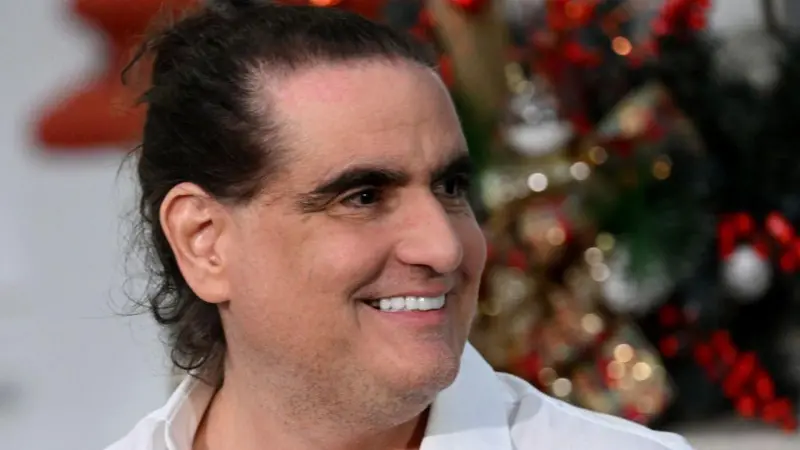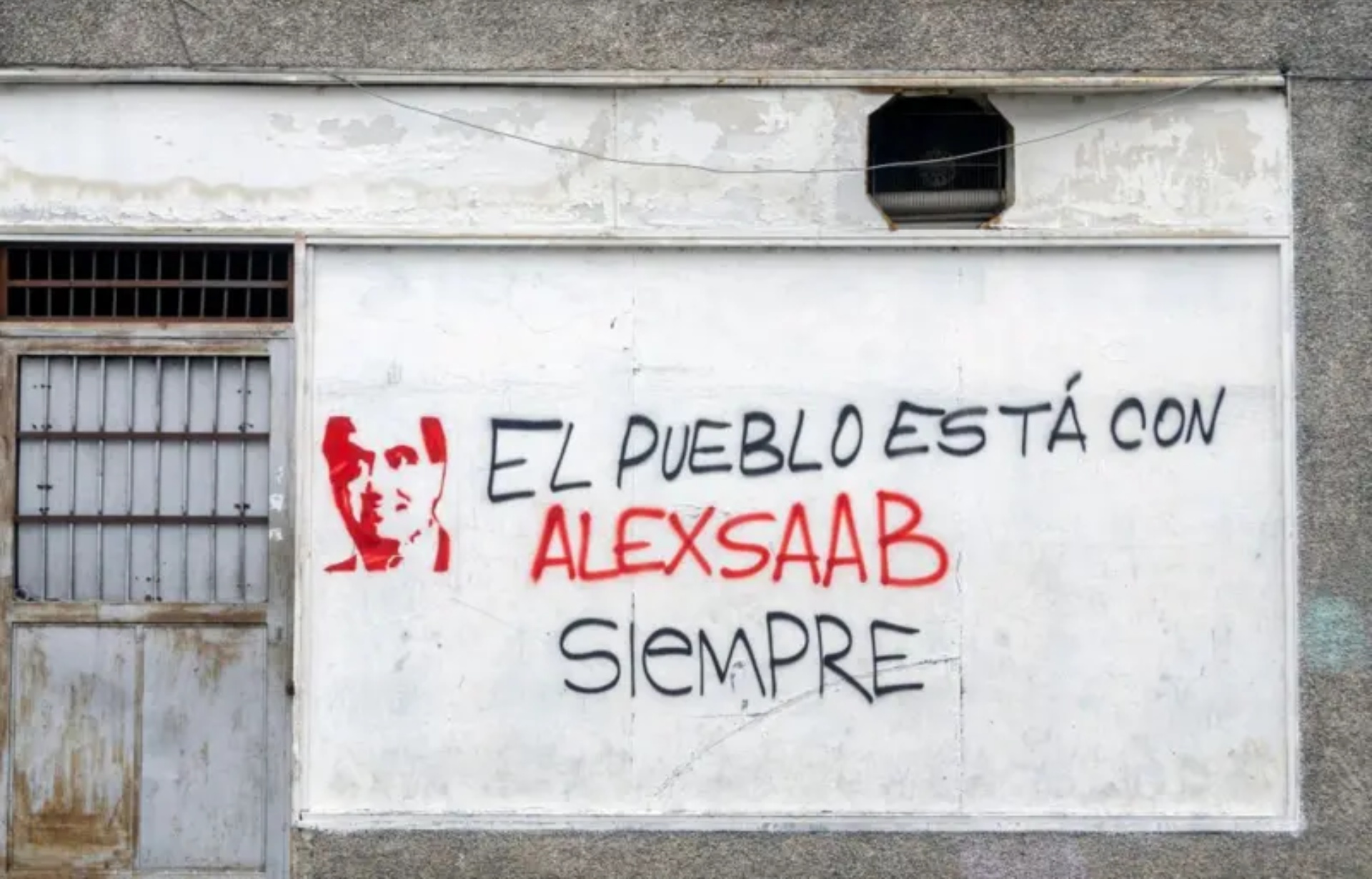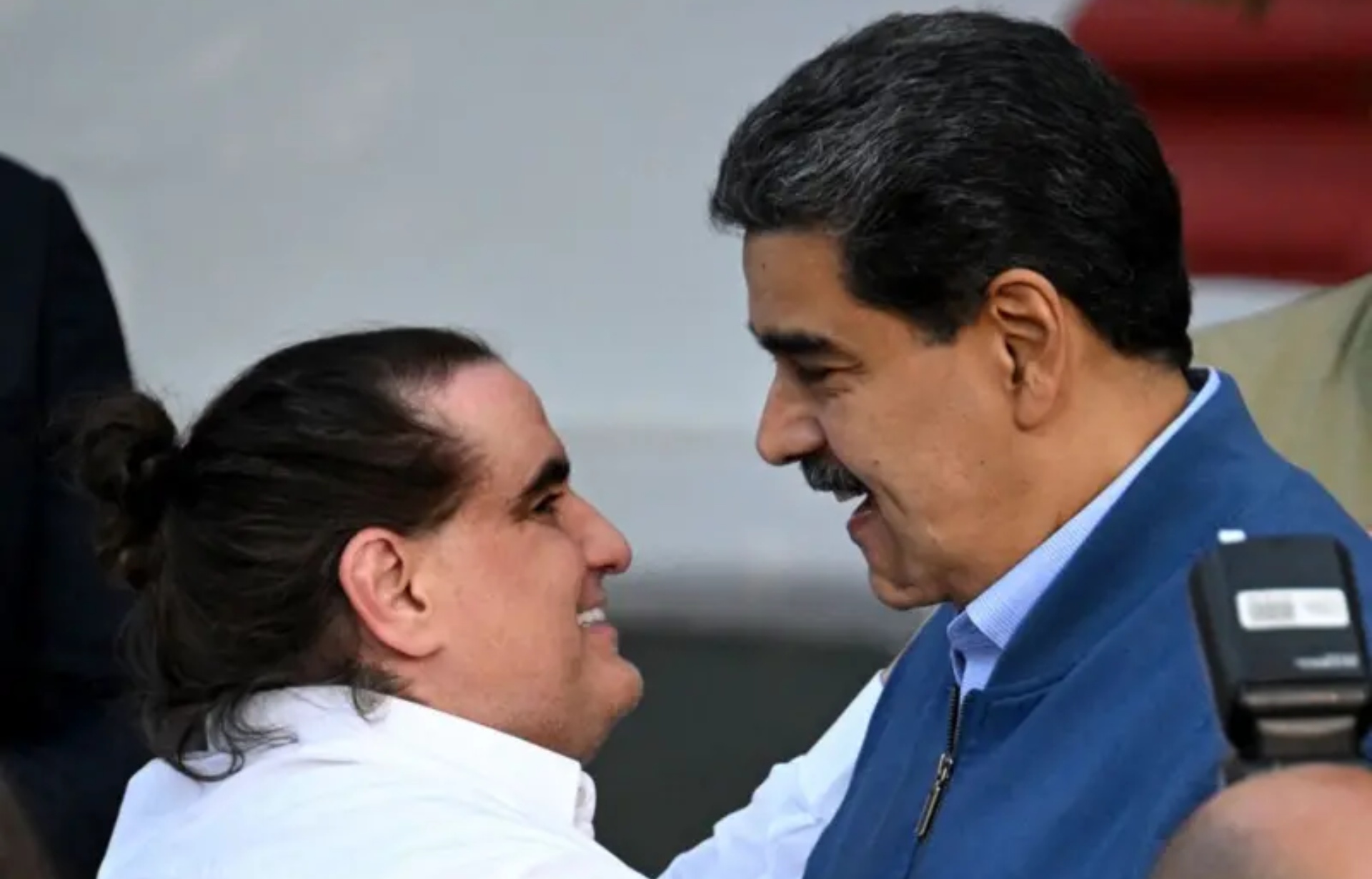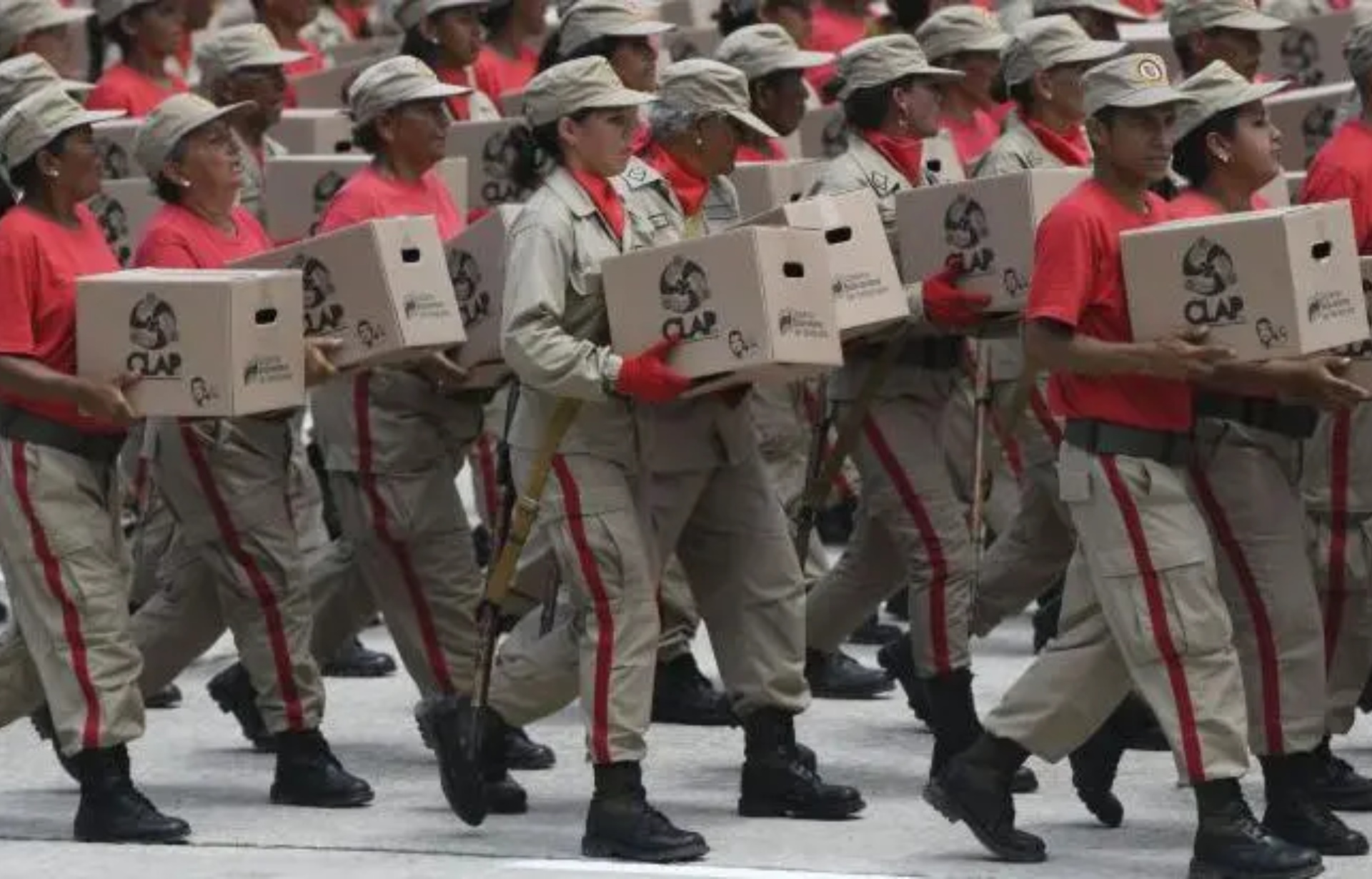Alex Saab: who is the controversial businessman who was imprisoned in the US accused of money laundering and who Maduro appointed Minister of Industry
In November 2011, the then presidents of Venezuela and Colombia, Hugo Chávez and Juan Manuel Santos, held a meeting for the ages.
Chavéz sang, Santos managed to open the door to a peace process with the FARC guerrilla that would give him the Nobel Peace Prize, and a Colombian businessman signed a social investment agreement that would be the origin of one of the most alleged corruption schemes. heard of recent times in Venezuela.
That businessman is called Alex Nain Saab Morán.
Saab, who was imprisoned for two years in the United States accused of money laundering and being Nicolás Maduro’s front man, was named the new Minister of Industry and National Production of Venezuela, replacing Pedro Tellechea.
«I am sure that with his great management capacity and commitment to our people, he will promote the development of the entire industrial system of Venezuela within the framework of the construction process of the new economic model. All the support for the immense task that he has to accomplish,” Maduro wrote on his social networks.
Saab was released from prison in December of last year in an exchange with the United States that included the release of around twenty foreigners and Venezuelans in Caracas, among whom there were 10 Americans.
For two years he was detained in a Miami jail on charges of conspiracy to launder money.
Saab was arrested in June 2020 in Cape Verde, an African archipelago where the private plane he was traveling on made a refueling stop while en route to Caracas from Tehran.
At that time he was accused, among other crimes, of money laundering, but he was also accused not only by the United States but also by other countries, including Colombia, of being one of the main figureheads of different corruption schemes within the Venezuelan government.

Alex Saab benefited from a detainee exchange agreement between the United States and Venezuela. Getty Images
After his arrest, The government of Nicolás Maduro took numerous steps to try to stop his extradition to the United States.
Caracas said Saab had obtained Venezuelan citizenship and appointed him in December 2020 as Venezuela’s ambassador to the African Union.
Subsequently, in September 2021, the Maduro government announced its intention to incorporate Saab as a delegate of the official commission that was negotiating a solution to the Venezuelan political crisis in Mexico with the opposition.
Saab, however, remained detained in Cape Verde and once he was extradited to the United States in October of that year, the Maduro government decided to leave the negotiation table in protest.
But who is this Colombian businessman who for many is a key element in knowing the alleged levels of corruption within the Chavista regime in Venezuela?
From Colombia to the CLAP

Since Saab’s arrest in Cape Verde, there has been an official campaign in Venezuela to free him. Getty Images
When he was arrested in Cape Verde, Saab was wanted by Interpol, accused of crimes such as conspiracy, money laundering and illicit enrichment in nine countries.
AND, If he had been convicted in the United States, he could have faced up to 20 years in prison.
And the investigation that led to his arrest in the middle of the Atlantic Ocean came from the United States, where federal prosecutors in Miami accused him of money laundering in the project that was signed under the presence of Chávez and Santos that November 28.
In addition, the US government identified him as an alleged front man for Maduro in a broad network of drug trafficking, dollar laundering and fraudulent awarding of million-dollar official contracts.
That November 28, 2011 was one of the few times that the world saw the face of this Barranquilla native of Lebanese origin who is usually described as a low-profile man and who met the Chavista leadership thanks to his friendship with the Colombian politician Piedad. Córdoba, close to Chávez and who was a key player in the peace process in Colombia.
Saab attended as a representative of the Colombian company Fondo Global de Construcciones and would be in charge of importing prefabricated materials from Ecuador and Colombia for the Great Housing Mission, a Chavista project aimed at building homes for the popular classes.
The US authorities assure that the homes run by Saab were not built and, if they were, it was with cost overruns.
According to Armando.Info, a Venezuelan investigative journalistic portal, Saab received US$159 million from the Venezuelan government to import housing materials between 2012 and 2013.
But it only delivered products for the equivalent of US$3 million, according to the Venezuelan journalists who had to go into exile after said report.
Saab was one of the businessmen who benefited from the exchange control system known as Cadivi, which delivered foreign currency at preferential rates that could then be resold in the illegal market.
Saab’s defense assured that there is no link between the Barranquilla resident and the Ecuadorian subsidiary of the Global Construction Fund that carried out the alleged crimes. “My client is an entrepreneur in the food business,” lawyer María Domínguez told Bloomberg.
Maduro’s alleged “front man”

Alex Saab is closely linked to Nicolás Maduro and was received at the Miraflores Palace when he was released by the United States. Getty Images
Indeed, another of the contracts that Saab signed with the Venezuelan government, already with Nicolás Maduro as president, was intended supply the Venezuelan people.
By then, in 2016, shortages of basic foods became common in Venezuelan supermarkets, a consequence, according to Maduro, of an economic war concocted from the United States and Colombia to overthrow socialism.
The government’s strategy to confront said “war” was to centralize the import and distribution of basic foods under the scheme of the Local Supply and Production Committees (CLAP).
Each Venezuelan registered in this scheme partially organized by the Armed Forces would receive a box with rice, chicken and oil, among other things, imported by government contractors. Saab was one of those contractors.
In May 2018, journalistic investigations revealed that Saab and another Colombian businessman, Álvaro Enrique Pulido Vargas, had benefited from million-dollar contracts with the Maduro government in the CLAP.

Saab was a supplier of food that was distributed in Venezuela through the CLAP. Getty Images
In July 2019, the US Department of Justice filed charges against Saab and Pulido, accusing them of having laundered up to US$350 million that they allegedly defrauded through the exchange control system in Venezuela.
According to former Venezuelan prosecutor Luisa Ortega Díaz, a former ally of Chávez and today a critic of the Venezuelan ruling party, the Colombian operated as a front man for a Maduro company in these businesses.
According to US authorities, Saab used a network of shell companies in countries such as Panama, Colombia, Mexico, the United Arab Emirates, Turkey and Hong Kong. to hide the illicit profits from these food import contracts.
When the investigations into those companies advanced, amid the wave of US financial sanctions on Venezuelan officials, Saab moved his companies to Türkiye, according to Armando.Info.
At that time, Maduro was about to sign agreements with the Turkish president, Recep Tayyip Erdogan, to exchange food for exploration and mining exploitation in southern Venezuela, nest of some of the largest gold reserves in the world.
And behind those businesses, according to US authorities, was also the name of Alex Nain Saab Morán.
It was hoped that during his trial in Miami, it would really be possible to know what role Saab may have had in all these matters. But after his release from prison in the US, it is unclear if that question will ever be answered.
Independent journalism needs the support of its readers to continue and ensure that the uncomfortable news they don’t want you to read remains within your reach. Today, with your support, we will continue working hard for censorship-free journalism!
